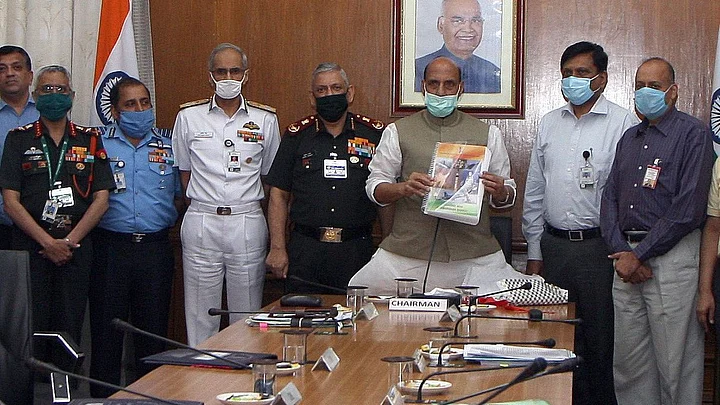India has done away with the offset clause in government-to-government, inter-government and single vendor defence deals, a week after the country's auditor pulled up French defence giant Dassault for not meeting its contractual obligation to reinvest in India after the sale of 36 Rafale fighter aircraft to the Indian Air Force.
The decision for the new policy was taken on Monday, 28 September, which was approved by the Defence Acquisition Council.
Apurva Chandra, Special Secretary and Director General (Acquisition) said that there will be no offset clause in government-to-government, inter-government and single vendor defence deals.
Chandra also stated that “no offset clause police did not bring any major technology in India, which led the foreign vendors loading extra costs in government-to-government deals,” reported The Indian Express.
Chandra said that as per revision in offset guidelines the preference would be given to the manufacturing of complete defence products over components and various multipliers have been added to give incentivisation in the discharge of offsets.
Chandra also said that “the three key focus areas of the DAP-2020 are Atmanirbhar Bharat, Make in India and ease of doing business. The procedure has five new chapters including leasing, acquisition from the DRDO and post-contract management,” reported Hindustan Times.
Union Defence Minister Rajnath Singh unveiled the new policy in a twitter post, “the DAP 2020 has been aligned with the Prime Minister Narendra Modi’s vision of Atmanirbhar Bharat and empowering the Indian domestic industry through Make in India initiative with the ultimate aim of turning India into a global manufacturing hub,” Rajnath Singh said in a Twitter post.
He also said that with the new Foreign Direct Investment policy announced, the DAP 2020 has adequately included provisions to encourage FDI to establish manufacturing hubs both for import substitution and exports while protecting the interests of Indian domestic industry.
On 23 September, India's federal auditor pulled up Rafale-maker Dassault and its weapons producer for not fulfilling their offset commitment to transfer technology to India as part of the 2016 contract for 36 combat jets.
The deal to buy 36 Rafale fighter jets was signed as an IGA with the French government, which included a 50 per cent offset clause, reported The Indian Express.
The country's financial watchdog Comptroller and Auditor General (CAG) in an audit report on Management of Defence Offsets tabled in the Parliament flagged that foreign vendors made various offset commitments to qualify for the main supply contract but later were not earnest about fulfilling these commitments.
In 2005, India adopted the Offset Policy for defence capital purchases. This meant that for all capital purchases above Rs 300 crore made through imports, the foreign vendor was required to invest at least 30 per cent of the value of the purchase in India, reported IANS.
This investment was to be made in the Indian defence and aerospace sector. Various avenues were available to the vendor to discharge these offset obligations. This included Foreign Direct Investment, offering of free Transfer of Technology to Indian firms, purchase of eligible products manufactured by Indian firms (exports). For the discharge of these offsets, the foreign vendor had to select an Indian firm as a partner (Indian Offsets Partner or IOPs).
The objective of the Offset policy was to develop the Indian defence industry so as to achieve self-reliance and reduce dependence on imports. From 2005 till March 2018, 46 offset contracts had been signed with foreign vendors, valued at Rs 66,427 crore.
“Under these contracts, by December 2018, Rs 19,223 crore worth of offsets should have been discharged by the vendors. However, the offsets claimed to have been discharged by them was only Rs 11,396 crore, which was only 59 per cent of the commitment,” CAG stated.
Further, only 48 per cent (Rs 5,457 crore) of these offset claims submitted by the vendors were accepted by the ministry. The rest were largely rejected as they were not compliant to the contractual conditions and the Defence Procurement Procedure, the auditor flagged.
(With inputs from IANS, The Indian Express, Hindustan Times)
(At The Quint, we question everything. Play an active role in shaping our journalism by becoming a member today.)
